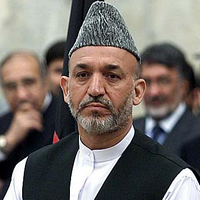The governments of the United States and its NATO allies routinely characterize Afghan President Hamid Karzai as corrupt and incompetent. These unjust accusations come after the West grossly mishandled Karzai for years, often placing damaging and contradictory pressures on him since he assumed the presidency in 2004.
Karzai's recent decision to expel two ministers tarnished by graft allegations is a positive sign of his efforts to improve the effectiveness and transparency of his administration, one that warrants recognition from the often-critical international community as a concrete example of good governance. The silence from the West following these firings speaks volumes as to its lack of support for the Karzai regime, further highlighted by the recent revelation of internal U.N. discussions -- between Peter Galbraith and Kai Eide -- about replacing Karzai with a more palatable politician.
Karzai was a White House favorite during most of the Bush administration. But starting in 2009, the U.S. and a number of Western nations have made an overt effort to distance themselves from him. Western critics have accused him of weak leadership, cutting deals with warlords, tolerating drug smugglers, ignoring corruption and, most recently, engaging in electoral fraud during the 2009 Afghan presidential election. President Barack Obama has said he regards Karzai as unreliable and ineffective. Secretary of State Hillary Clinton has said he presides over a "narco-state."

